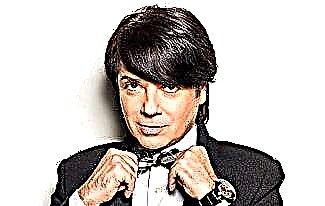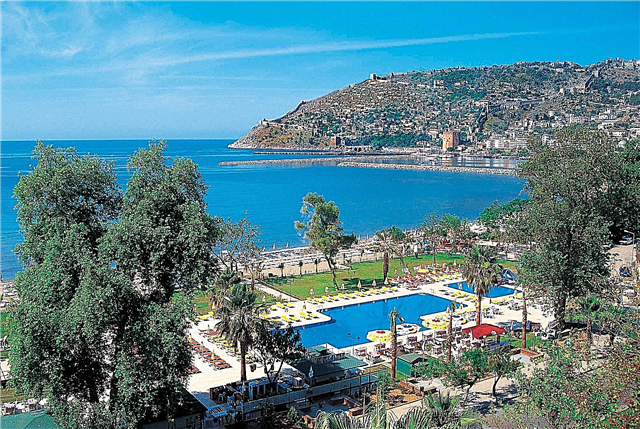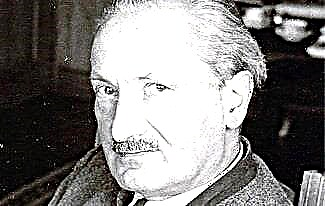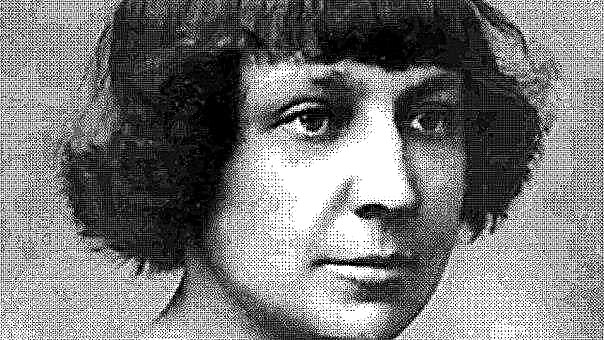Mikhail Vasilievich Petrashevsky (1821-1866) - Russian thinker and public figure, politician, linguist, translator and journalist.
He took part in meetings devoted to the organization of a secret society, was a supporter of the long-term preparation of the masses for the revolutionary struggle. In 1849, Petrashevsky and several dozen people associated with him were arrested.

Petrashevsky and 20 others were sentenced to death by the court. Among these 20 people was the great Russian writer Fyodor Mikhailovich Dostoevsky, who was a member of the Petrashevsky circle.
There are many interesting facts in the biography of Petrashevsky, which we will talk about in this article.
So, before you is a short biography of Mikhail Petrashevsky.
Biography of Petrashevsky
Mikhail Petrashevsky was born on November 1 (13), 1821 in St. Petersburg. He grew up and was brought up in the family of a military doctor and state councilor Vasily Mikhailovich, and his wife Feodora Dmitrievna.
It is worth noting that at one time Petrashevsky Sr. was involved in the organization of cholera hospitals and the fight against anthrax. In addition, he is the author of a medical work entitled "Description of a surgical machine for repositioning dislocated fingers."
An interesting fact is that when General Mikhail Miloradovich was mortally wounded on Senate Square by the Decembrist in 1825, it was Petrashevsky's father who was summoned to provide assistance.
When Mikhail was 18 years old, he graduated from the Tsarskoye Selo Lyceum. Then he continued his education at St. Petersburg University, choosing the Faculty of Law. After 2 years of training, the young man began to serve as an interpreter at the Ministry of Foreign Affairs.
Petrashevsky took part in the publication of the "Pocket Dictionary of Foreign Words That Are Part of the Russian Language". And if the first issue of the book was edited by Valeria Maikov, a Russian literary critic and publicist, then only Mikhail was the editor of the second issue.
In addition, Petrashevsky became the author of the overwhelming majority of theoretical works. The articles in the dictionary promoted democratic and materialistic views, along with the ideas of utopian socialism.
Petrashevsky circle
In the mid-1840s, meetings were held every week in the house of Mikhail Vasilyevich, which were called “Fridays”. During these meetings, various topics were discussed.
It is important to note that in Petrashevsky's personal library there were many books banned in Russia on utopian socialism and the history of revolutionary movements. He was a supporter of democracy and also advocated the liberation of peasants with land plots.
Mikhail Petrashevsky was a follower of the French philosopher and sociologist Charles Fourier. By the way, Fourier was one of the representatives of utopian socialism, as well as the author of such a concept as “feminism”.
When Petrashevsky was about 27 years old, he participated in meetings at which the formation of a secret society was discussed. By the time of his biography, he had his own understanding of how Russia should develop.
Arrest and exile
Michael called people to a revolutionary struggle against the current government. This led to the fact that on December 22, 1849, he was arrested along with several dozen like-minded people. As a result, the court sentenced Petrashevsky and about 20 other revolutionaries to death.
An interesting fact is that among those sentenced to death there was a young Russian writer Fyodor Dostoevsky, already known at that time, who shared the views of Mikhail Petrashevsky and was a member of the Petrashevsky circle.
When the revolutionaries from the Petrashevsky circle were brought to the place of execution and even managed to read the accusation, unexpectedly for everyone, the death penalty was replaced by indefinite hard labor.

In fact, even before the trial began, the servicemen knew that they would not have to shoot the criminals, which the latter did not know. One of those sentenced to death, Nikolai Grigoriev, lost his mind. The feelings that Dostoevsky experienced on the eve of his execution were reflected in his famous novel The Idiot.
After all that happened, Mikhail Petrashevsky was exiled to Eastern Siberia. Local Governor Bernhard Struve, who communicated with the revolutionary, expressed not the most flattering reviews about him. He said that Petrashevsky was a proud and vain man who wanted to be in the spotlight.
In the late 1850s, Mikhail Vasilyevich settled in Irkutsk as an exiled settler. Here he collaborated with local publications and was engaged in teaching activities.
During the biography of 1860-1864. Petrashevsky lived in Krasnoyarsk, where he had a great influence on the city duma. In 1860, a man founded the Amur newspaper. In the same year he was exiled to the village of Shushenskoye (Minusinsky District), for speaking out against the arbitrariness of local officials, and later to the village of Kebezh.
Death
The last place of residence of the thinker was the village of Belskoe (Yenisei province). It was in this place that on May 2, 1866, Mikhail Petrashevsky passed away. He died of a cerebral hemorrhage at the age of 45.
Petrashevsky Photos













